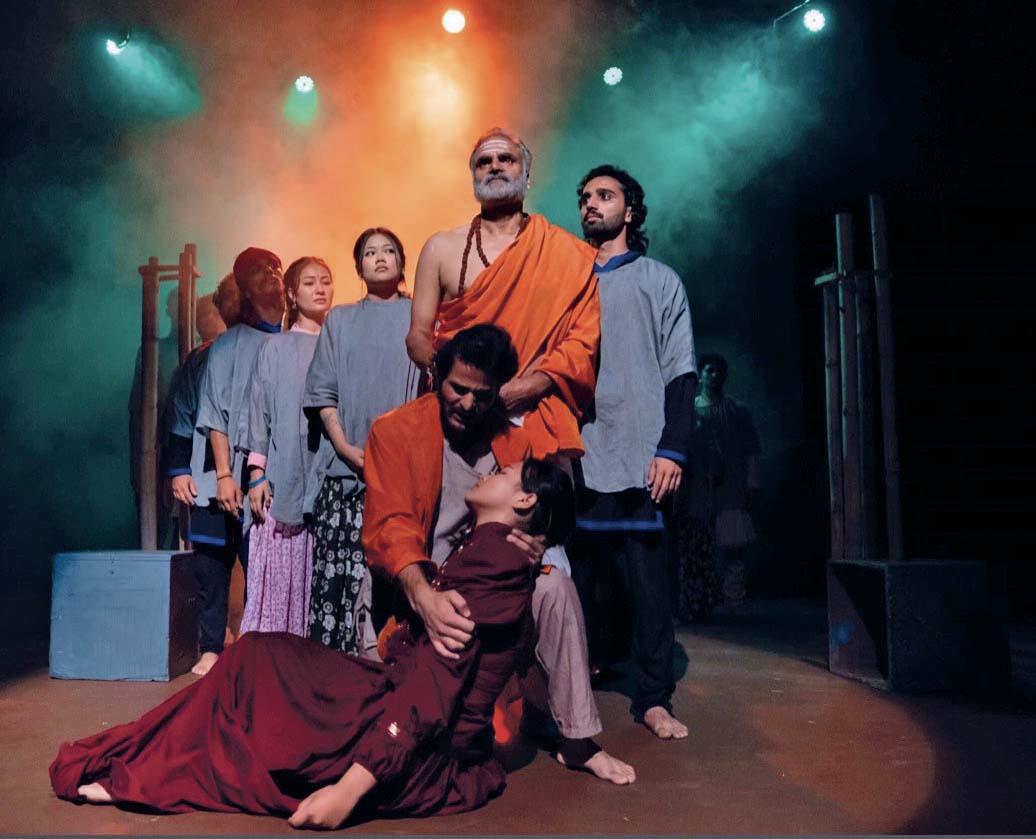Judul : Creative industries look ahead after unrest
link : Creative industries look ahead after unrest
Creative industries look ahead after unrest

Kathmandu, Sept. 15 -- Nepal has been shaken by the recent political turmoil, which caused widespread damage and loss of life. The country faced several days of curfew, leaving much of daily life on hold. During this crisis, planned films, theatres, and festivals have faced disruptions, as audiences avoid gatherings and events are postponed or cancelled. Artists and organisers are now facing uncertainty, wondering when and how the country's cultural life will bounce back.
Films that were set to release during this period have also faced major setbacks. The film 'Abhimanyu', for instance, was meant to hit cinemas on September 12, but the political unrest forced the release to be postponed. According to a report by Kantipur, actor Kameshor Chaurasiya, who plays the lead, expresses his frustration, "Everything seems to happen on my watch. First was the earthquake during 'Resham Filili', then Covid-19 with 'Garud Puran', and now 'Abhimanyu'. Having the film postponed right when it was supposed to be released affects us greatly," he says.
Despite these challenges, the team continued promoting the film, releasing its trailer and songs, and travelling to major cities like Itahari, Biratnagar, and Birgunj to engage with audiences. Producer Binod Poudel, speaking to Kantipur, noted the financial impact of the delays. "The film, made on a budget of Rs10 million, had already spent around Rs2.5 million on promotion. Not being able to release on time has cost us dearly," he says. He adds that the situation also affects major festivals, emphasising that the country needs stability before cultural and entertainment events can return, "It's not just us. Other films planned for Dashain and Tihar have also been affected. The country needs to stabilise first. Once people can forget this hardship, entertainment will return," he says.
The art sector has also felt the impact of the current crisis. The month-long exhibition 'To Build a Shelter', which was scheduled at Takpa Gallery from 6 to 27 September, has now been postponed. Speaking to the Post, the gallery's director, Tashi Tshering, explains that while the exhibit was intended to provide a platform for ten young, emerging artists, the ongoing uncertainty in the country has made it difficult to continue as planned. "More than money, it's about the exhibiting artists. This was meant to be a networking platform for them," he notes. "It has really affected us, but we look forward to the coming days. If things improve, we plan to reopen it, but for now, it is postponed until further notice."
Sudikshya Dongol, founder of Kalashala, shares that many classes and events have been postponed. "It has been difficult, and we wanted to resume our classes, but since so many people have lost their lives, we wanted to take some time to mourn," she says. One example is an art journaling workshop set to take place on September 13.
Theatre productions have also been disrupted by the recent unrest. The play 'Sirumarani', running at Mandala Theatre from August 27 to September 21, had to be stopped midway after the protests. Director Anup Neupane explains that while they plan to resume the performances once the situation improves, no definite date has been set yet. "People's lives and safety are our priority right now. Once things get better, we will start again," he says, highlighting the uncertainty faced by artists and audiences alike in returning to normal activities.
Speaking about the broader cultural climate, Aayusha Shrestha, curator of the Nepal Art and Culture Festival 2025, expressed both grief and determination in light of the recent upheaval. "The nation is undergoing significant changes brought about by the Gen Z movement. We express our deepest condolences for the loss of life. The sacrifices have reshaped the national, political, and social discourse, bringing forth aspirations for accountability, dignity, and structural changes," she says.
In this context, Shrestha explains, it is crucial to understand the governance structure of the festival to ensure proper alignment. "Nepal Art Council (NAC) serves as the central organiser, yet the ownership and primary drive for events within their localities lie with the respective municipalities or metropolitan governing bodies. All the bodies were moving forward to promote cultural tourism," she notes.
She adds that decision-making authority ultimately rests with these local bodies, and the festival will continue to operate according to their guidance. "At present, given the evolving circumstances, the festival is formally on hold. As the situation stabilises and a sense of normalcy emerges, we will work toward a collective decision with all stakeholders," she says.
Despite the challenges, Shrestha remains hopeful about the road ahead. "We also see this as an opportunity to bounce back with renewed vigour. The festival remains committed to being a platform of unity, resilience, art, and cultural pride-one that mirrors the spirit of creativity and perseverance that defines our people," she shares.
For now, Nepal's creative industry remains suspended between grief and resilience. The postponements, cancellations, and silences across films, theatres, galleries, and festivals echo the nation's collective mourning, yet they also underscore the role of art as a mirror of society. As the country works towards stability, artists and organisers hold on to the hope that cultural spaces will once again thrive-reminding people of what has been lost and the creativity and perseverance that endure even in times of crisis.
Thus the article Creative industries look ahead after unrest
You are now reading the article Creative industries look ahead after unrest with the link addresshttps://www.unionhotel.us/2025/09/creative-industries-look-ahead-after.html
0 Response to "Creative industries look ahead after unrest"
Post a Comment